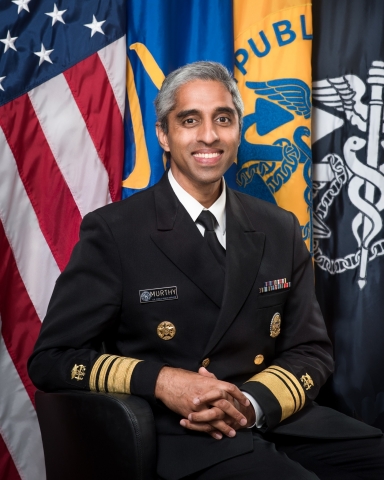SAN RAFAEL, Calif. & WASHINGTON--(BUSINESS WIRE)--A nationwide poll of more than 1,000 adults revealed that 78 percent of respondents believe social isolation among young people is a growing concern since the pandemic began. These survey results are being disseminated just as the U.S. Surgeon General Dr. Vivek Murthy released a public advisory calling for action to address the mental health crisis among youth that was exacerbated during the pandemic. Dr. Murthy provided a 53-page report pointing out that the pandemic intensified mental health issues that were already widespread prior to spring 2020.
The results of the poll were released by Beyond Differences and the Foundation for Social Connection, two nonprofits working to end social isolation. Each poll participant was asked if they thought social isolation has become more of a problem, become less of a problem, or has not changed for young people since the beginning of the pandemic.
Research has shown that social isolation in youth can contribute to a wide range of both behavioral and physical health issues including eating disorders, insomnia, depression, and cardiovascular problems.
“The COVID-19 pandemic disrupted communities and led many people to feel more isolated and alone, including school-age children and teens,” said U.S. Surgeon General Dr. Vivek Murthy. “Feeling a sense of belonging is vital to youth mental health, physical health, and overall well-being, so it’s crucial that we work to support students in building healthy relationships with their classmates and communities.”
Nonprofit Beyond Differences, whose mission is to inspire youth to end social isolation and create a culture of belonging at their school, has been providing free programs for schools to bring awareness to social isolation, help students take leadership roles in lifting up other students, and creating a culture of belonging.
“The pandemic shined a light on the issue of social isolation for the world. With distance learning and students suddenly removed from daily activities and interactions, the need to relearn social skills and how to celebrate differences in others has become even more essential,” said Laura Talmus, co-founder of Beyond Differences. “We provide year-round programs that are entirely free for schools and easy for teachers to incorporate into their daily lessons.”
Eddie Garcia is optimistic that with this knowledge more schools and communities will take action to curb the issue of social isolation. Garcia is the founder and executive director of the Foundation for Social Connection and co-director of the Coalition to End Social Isolation and Loneliness, two nonprofits that engage in education, increase public awareness, promote innovative research and policy solutions, and spur the development and implementation of evidence-based models that address social isolation, loneliness, and social connection.
“On a national and even global level, we fail to spotlight the negative impacts that a lack of social connection has on children, adolescents, and young adults. The fact that children and teenagers are in crisis due to lack of connection is extremely troubling; the good news is that people recognize the issue and are asking for help,” said Garcia. “The Surgeon General’s mental health advisory for youth is a great first step by our federal policymakers, but much more is needed to address the various physical, behavioral, and long-term economic effects of social disconnection. What we need now is a coordinated, national response that leverages federal, state, and community efforts -- such as those run by Beyond Differences -- so that we can end social isolation and loneliness in youth. We can only do this together.”
For more information, visit beyonddifferences.org.




